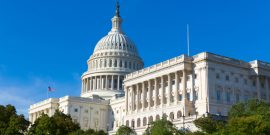Friday Roundup, May 3rd
- The May Liberty Forum is now available and features a great exchange among Greg Weiner, Stephen Knott, and George Thomas on the need for Congress to re-assume its full powers of deliberative government. Weiner asks if we are all Wilsonians now?
Neoconservatives, it should be said in fairness, brought the 28th President’s ideology through the front door in the plain light of day in the form of a moralized and expeditionary foreign policy. What few noticed is what got simultaneously smuggled in the back: a constitutional philosophy that suppresses Congress, elevates the Presidency and replaces deliberation and an awareness of human frailty—once staples of conservative thought—with moral certitude and an emphasis on power concentrated in the daring man of decisive action. Those who prefer simpler political pleasures—liberty is one, prudence another—have reason for concern. For them, this is a season for a reassertion of legislative prerogatives, of the not merely equal but paramount role the Framers assigned to the most—indeed, the only—deliberative branch of government: Congress.
In his response essay “Congress, Heal Thyself” Stephen Knott responds with both historical and constitutional challenges to Weiner’s depiction of the supremacy and inherent moderation of Congress. George Thomas notes the complexity of presidential power in the Constitution and further wonders if the self interest of Congress in transferring its powers to the executive branch and avoiding full accountability for its decisions now outweighs its formal constitutional obligations
- Yet another book on the American and Chinese relationship. Donovan Chau reviews in the Books section this week, An Awkward Embrace: The United States and China in the 21st Century. Dragons and pandas aside, Chau notes that the key is measuring the strategic intentions of China which is quite difficult given that “elite Chinese politics” are still very much a “black box.” “One can only determine China’s strategic intentions by delving into this very black box.”Chau provides one method for discerning such intentions:
Today, we may ascertain more clearly China’s strategic intentions – the black box – by examining its current leader’s statements. Xi Jinping, before and after assuming the presidency of the People’s Republic this past March, made a series of speeches, the themes of which were a “China Dream.” “This dream can be said to be the dream of a strong nation. And for the military, it is a dream of a strong military,” Mr. Xi said in December 2012 on board a guided-missile destroyer. “To achieve the great revival of the Chinese nation, we must ensure there is unison between a prosperous country and strong military.”This is certainly an affirmation of Blumenthal’s assessment in the book; but the book itself reveals very little in the way of China’s strategic intentions, despite evidence in open sources.
- Ken Masugi, long-time contributor to this site, will devote his considerable constitutional learning to Law and Liberty as a guest blogger for the month of May. Ken tells me that he has pursued failed careers in academia, federal and state government, and the think-tank world. He is adding blogging for libertylawsite to his list of accomplishments.
- So it seems that May Day passed with little fanfare this year. Masugi noted its passing with a reflection on Lincoln and Marx, arguing the moral imperative of free labor that is always under threat given the animus of human passions. In highly appropriate fashion Art Carden at Econ Lib gives us the Bourgeois Virtues and the world they built.
- Fed-Soc Practice Groups podcast on the internet sales tax also contains discussion of a veritable favorite subject on this site, the liberty promoting dormant commerce clause.
- John Steele Gordon on the scope of too many too big to fail banks and the ineptitude of Dodd-Frank in dealing with this potential threat.
- On the Pigford scandal, Charles Cooke reports that the lawyers were front and center with careers and money being made on lies.


